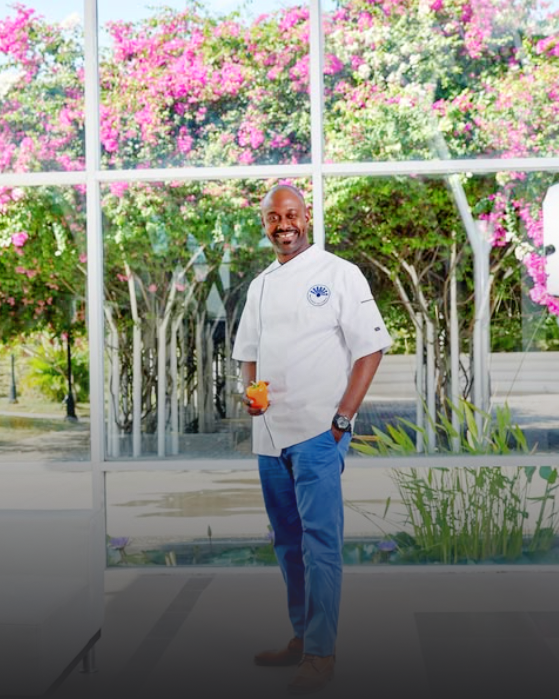
Haitian Immigrants are as much part of the fabric of Miami, and the US as the plethora of cultures who have all relocated to North America. Haitian immigrations have brought with them, their culture, food, art & history while maintaining a deep connection to the island nation from where they came. From across the ocean, they settled and now share stories from across the street.
Little Haiti has become a cornerstone of Miami's multicultural identity. Its influence reaches beyond the local community, with Haitian-Americans driving change in politics, education, and business. The annual Haitian Compas Festival, the Little Haiti Cultural Complex, and iconic markets like Chef Creole are just a few of the community’s contributions to Miami’s cultural fabric.







Miami's vibrant culture is a melting pot of influences, shaped by waves of immigrants from across the globe. Among them, Haitian immigrants have left an indelible mark on the city’s landscape, their stories unfolding both "across the street" and "across the ocean." From art to food, and music to activism, the contributions of the Haitian community in Miami and the broader United States weave a narrative of resilience, creativity, and cultural fusion.
The Haitian diaspora in Miami began in earnest in the 1970s and 1980s, when political instability and economic hardship drove thousands to seek refuge in the United States. They came by boat, sometimes enduring perilous journeys across the Atlantic Ocean. For many, Miami became their new home, a place where they could start over. Despite facing challenges such as discrimination and economic struggle, Haitian immigrants brought with them a rich cultural heritage deeply rooted in the history of Haiti—a nation that had won its freedom through the only successful slave revolt in history.
This resilience has become a central theme in the Haitian-American story, passed down through generations, not just as a historical lesson but as a source of pride and motivation.
Over time, Little Haiti emerged as a cultural enclave in Miami. "Across the street" from the bustling metropolis, this vibrant neighborhood serves as the heart of Haitian culture in the United States. Colorful murals depicting scenes from Haitian history, markets filled with Caribbean produce, and streets pulsating with the beats of kompa music create a vivid reminder of the homeland.
Little Haiti has become a cornerstone of Miami's multicultural identity. Its influence reaches beyond the local community, with Haitian-Americans driving change in politics, education, and business. The annual Haitian Compas Festival, the Little Haiti Cultural Complex, and iconic markets like Chef Creole are just a few of the community’s contributions to Miami’s cultural fabric.
One of the most significant ways Haitians have shaped American culture is through art. Haitian art is vibrant, surreal, and deeply tied to the spiritual practices of Vodou, Haitian history, and African heritage. Haitian painters, sculptors, and performers have created works that tell the stories of survival, revolution, and hope.
In Miami, galleries and festivals showcase this unique artistic tradition, connecting Haitian artists "across the ocean" with American audiences. Artists like Edouard Duval-Carrié and Philippe Dodard are celebrated not only in Miami but internationally. Their works explore themes of migration, identity, and the blending of African, Caribbean, and Western influences. Through their art, they tell the stories of those who have come before them, their struggles and triumphs crossing oceans, streets, and borders.
Food is another powerful way that Haitian immigrants have influenced American culture. Haitian cuisine reflects the island's African, French, and Indigenous roots, a blend of flavors that speaks to the complexity of Haitian history.
In Miami and beyond, Haitian restaurants have become iconic for their bold flavors and rich traditions. Dishes like griot (fried pork), diri ak djon djon (black mushroom rice), and pikliz (spicy pickled vegetables) have not only become staples in Little Haiti but are also making waves in the broader culinary scene across the United States.
Haitian chefs are now gaining recognition for their contributions to the American food landscape. Their innovative approaches blend traditional techniques with modern culinary trends, and their restaurants serve as cultural ambassadors, introducing diners to the tastes and stories of Haiti.
Beyond Miami, Haitian immigrants have made contributions across the United States in fields ranging from politics to medicine. Haitians like Jean Baptiste Point du Sable, the founder of Chicago, to trailblazing politicians such as Mia Love and healthcare workers who played key roles during the COVID-19 pandemic, have shaped American history in profound ways.
The Haitian-American community, with roots stretching across the ocean, continues to build bridges within the United States. Their story is one of resilience and empowerment, a testament to the possibilities that arise when cultures merge and enrich one another.
The Haitian immigrant story is a powerful reminder of how interconnected our worlds truly are. Across the ocean, they brought with them their history, traditions, and dreams for a better future. Across the street, in places like Little Haiti, those dreams have blossomed into a thriving community that continues to shape Miami’s identity and influence American culture.
Today, their contributions are felt far beyond their own neighborhoods, from the art galleries and kitchens of Miami to the halls of Congress and the medical institutions of America. It is a story of migration, struggle, and triumph—one that reminds us that the distance between “across the street” and “across the ocean” is not so far after all.
In celebrating the contributions of Haitian immigrants, we honor the broader immigrant experience that has shaped and continues to shape the culture of Miami and the United States as a whole.





